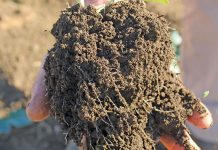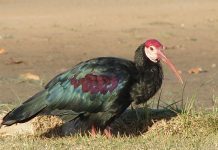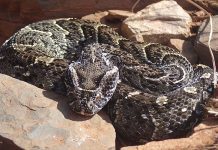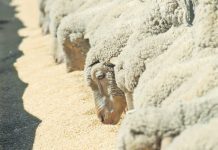
Baobab seed oilcake has been proven to be a potential low-cost protein source for various livestock diets in Africa. Prince Chisoro, a doctoral animal science student at the University of Fort Hare’s department of livestock and pasture, in his research paper titled, ‘Baobab seeds in livestock diets’, cites studies that have shown that baobab seed meal can be incorporated into livestock diets without significant detrimental effect on performance and meat quality. Its availability in South Africa presents an opportunity for stock farmers to utilise its nutritional properties as well as cut feed costs.
A baobab tree’s seed production varies according to size and age, but a single tree can yield up to 500kg. In some areas, such as in Limpopo and the north-western and eastern regions of Zimbabwe, baobab trees are abundant, allowing for the production of a significant amount of seed. According to Chisoro, the livestock feed industry should be made aware of the potential of baobab seeds so that methods can be devised on how best to use them as feed.
Projections from the Food and Agriculture Organisation estimate that the world’s population could reach 9,1 billion by 2050, no less than 24% higher than the current figure. This implies that total livestock production will increase, as will the demand for conventional protein sources for animal feed, such as soya bean cake.
Oilseed cakes, by-products of the seed-oil industry, are derived from various seeds. Some are already used as an alternative source of protein for livestock. There is no competition from humans as they are not consumed by people, and they do not compete with the growing feedlot sector.
Feed value
Chisoro cites in his research paper studies that have shown that baobab seeds have high values of fibre, fats and proteins, as well as most minerals. The seeds have a protein value ranging from 20% crude protein content (CP) to 36% CP and an energy level of between 4,19kJ/kg and 16,75 kJ/kg, which is comparable to sunflower meal (24,4 CP to 36,7 CP and 19,1kJ/kg to 20,2kJ/ kg) and soya bean hulls (10,5 CP to 19,2 CP and 17,5kJ to 18,7kJ/kg).
Baobab leaves contain about 13% to 15% protein content and 60% to 70% carbohydrate content, and the fruit contains 8,7% moisture, 2,7% protein and 73,7% carbohydrate. Most of the observed amino acids in the seeds are categorised as essential. Chisoro also cites a study which suggests it might be possible to use baobab seed protein to improve cereal protein quality. The seed contains an appreciable quantity of oil (29,7%, dry weight basis), a good source of mono- and polyunsaturated fatty acids.
Despite the fact that baobab seeds contain some anti-nutritive factors such as phytate (2%), oxalate (10%), tannins and saponins (3% to 7%) – which affect digestion and nutrient uptake in livestock – their levels are generally assumed to be low enough to not cause any detrimental effects. They are known to be deactivated or removed by various processing procedures such as dehulling, fermentation, cold and hot water, acid, and hot alkali treatments.
Promising results
Chisoro refers to several studies which produced positive results:
- The incorporation of baobab seed meal as a feed ingredient for livestock yielded varying degrees of success;
- Replacing soya bean meal with the oilcake at 5% to 10% in dairy cow feed decreased milk butterfat and yield, but saw an increase in total milk solids and protein content;
- Oilcake can make up to 12,5% of a sheep ration, despite reducing protein digestibility.
- Forming up to 15% of rabbit diets, baobab pulp and seed meal had no ill effects on their growth and health, and reduced production costs;
- Feeding juvenile African sharp-tooth catfish a diet consisting of up to 25% boiled baobab seeds had no detrimental effect on growth;
Incorporating the seed meal in poultry diets (7,5% to 10%) resulted in improved performance of broilers and reduced oxidative spoilage of broiler chicken meat.
Phone Prince Chisoro on 074 640 9268 or email [email protected].












